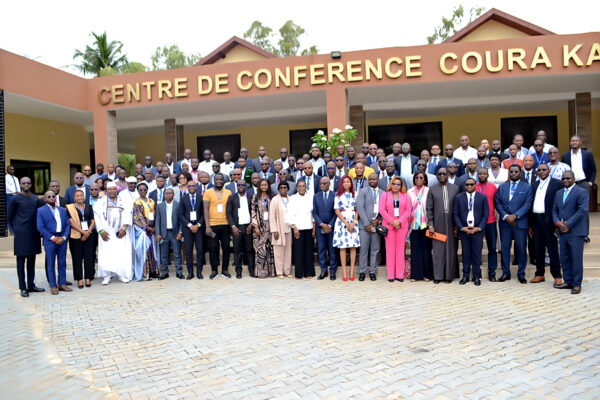On Monday, July 7, 2025, the Federation of African National Insurance Companies (FANAF) opened its international seminar on the digitalization of insurance operations in the CIMA zone in Saly, Senegal. This high-level meeting, organized under the leadership of the Training Commission chaired by Mrs. Évelyne Fassinou, brings together a hundred participants from about ten African countries. Institutional actors, insurers, reinsurers, insurtechs, brokers, IT experts, and specialized lawyers gathered for three days of discussions on an issue that has become central to the sector: mastering the new requirements of Regulation 01/CIMA/PCMA/CE/2024, which came into effect last January.
This fundamental text redefines the legal framework for the distribution and management of insurance contracts electronically in the 14 member countries of the Inter-African Insurance Markets Conference.
The new CIMA regulation imposes strict and structuring supervision of the digitalization of insurance, with the ambition to harmonize practices, secure digital transactions, and protect policyholders in a rapidly changing environment. It specifies the conditions for the validity of electronic subscriptions, transparency obligations in digital relationships with clients, data and evidence retention, as well as the responsibility of stakeholders. It also supervises the involvement of digital platforms, third-party providers, and insurtechs in value chains, while laying the foundations for governance adapted to the digital age.
Far from being a simple regulatory update, this regulation brings about a fundamental transformation of the insurance profession in the CIMA area. It requires companies to overhaul their commercial, management, and compliance processes within a more demanding regulatory framework. In this sense, FANAF intends, through this seminar, to play a role as a skills accelerator. Participants are trained in the technical and legal requirements of the new framework, compliance tools, successful digitalization case studies, and digital transition strategies adapted to local constraints.
Two seasoned experts lead the discussions: Mr. Saliou Bakayoko, an actuary and award-winning author, a key player in negotiations with CIMA, and Mr. Souleymane Faye, co-founder of a pioneering African insurtech. Through their interventions, they give substance to the ongoing reform by highlighting the concrete opportunities it offers to actors ready to innovate: expanding the customer base through digital distribution, improving the customer experience, optimizing operational costs, and enhancing transparency.
The FANAF seminar confirms that digitalization is no longer a trend but a strategic, regulatory, and competitive imperative. At a time when the African insurance sector seeks to expand its footprint in digital economies, Regulation 01/CIMA/PCMA/CE/2024 appears as an essential lever of transformation. It demands insurers to have a dual capacity: to master technologies and to remain fully aligned with the law. This structural challenge will condition the emergence of a more resilient, inclusive, and innovative African insurance sector. The event is led by two recognized figures in African insurance: Saliou Bakayoko, a seasoned actuary and former leader of a pan-African group, award-winning author and negotiator of the CIMA regulation, and Souleymane Faye, also an actuary and entrepreneur, at the helm of an insurtech aiming to reinvent insurance on the continent. The discussions focus on interpreting the new regulatory framework, the opportunities it presents, the challenges to anticipate, and the best practices observed in African and international markets. The ultimate goal is to enable insurance companies, reinsurers, insurtechs, and brokers to adapt their strategies, secure their digital operations, and integrate the expected standards in terms of compliance, customer experience, and digital management. More than just an upgrade, FANAF is shaping with this seminar the contours of a new African insurance ecosystem, agile, connected, and oriented towards innovation.


